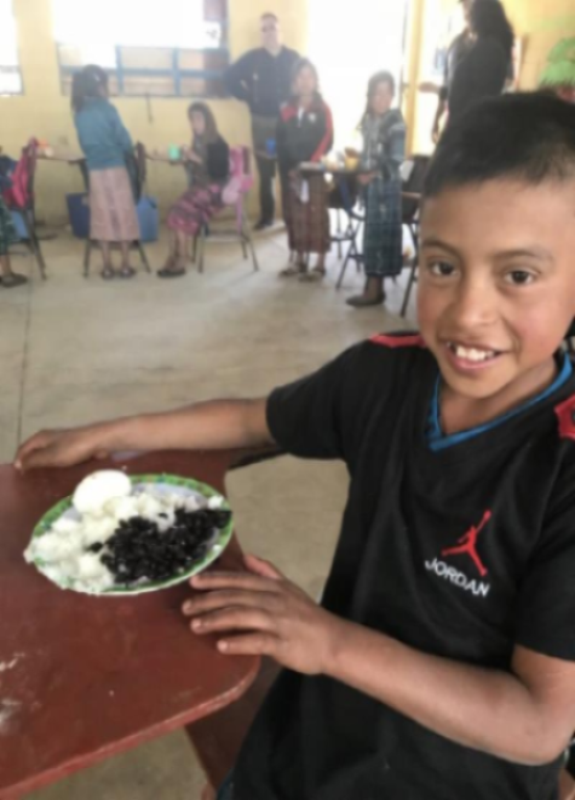New Research Shows Benefits of Bean for Improved Child Growth
April 20, 2018A new report from Washington University with support from the Feed the Future Legume Innovation Lab (LIL) run by Michigan State University concludes that dietary intervention with edible beans can prevent childhood stunting. The prevalence of malnutrition or hidden hunger persists throughout much of the world despite various feeding interven-tions run by the U.S. government and human-itarian organizations. Malnutrition hampers proper childhood development and leaves children vulnerable to sickness and disease. It is a global challenge that has become one of the United Nations Global Nutrition Targets for 2025.

Smiles from children in Guatemala enjoying U.S. black beans as part of their school feeding program
According to the study, “Complementary feeding with cowpea, also known as black-eyed pea, or common bean was found to have positive effects on gut health, nutrient absorption and linear growth during early childhood.” This particular study was funded by USAID through the LIL and specifically addressed stunting in young rural African children through two clinical trials conducted in Malawi with 800 children. The research concluded that, “The addition of cowpea to complementary feeding of Malawian infants between 6 and 12 months old resulted in significantly less stunting. In addition, common “navy” bean supplements to the diets of children between 12 and 36 months of age led to reduced inflammation and an improvement in gut health.” This study is a game changer as it provides the first affordable and accessible solution to children suffering from stunting in Africa and hopefully elsewhere.
To read the full study abstract click here, https://www.canr.msu.edu/news/new-research-demonstrates-role-of-grain-legumes-in-fighting-malnutrition.